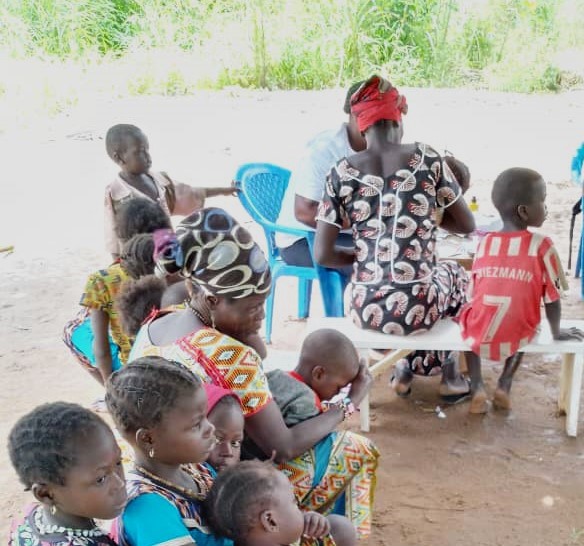A network of women is providing essential health services to other women in their communities, in three of the most vulnerable and conflict affected prefectures in Central African Republic (CAR).
Called Female Focal Points (FFP), it was formed after a study of Community Health Workers (CHWs) in 2016 found women were not always comfortable approaching male CHWs about personal health issues.
Initially, this network was set up on a voluntary basis providing Information, Education and Communication (IEC) and sensitisation activities. Now FFPs are paid monthly and are an integral part of MENTOR’s community health model, improving the uptake of treatment and vaccinations and helping to prevent diseases.
The Female Focal Points deliver direct health information and advice, particularly on maternal and child health issues. It has been found that women are more likely to listen to advice on child health when given by a FFP.
Although FFPs can’t provide any form of treatment, they can refer other women to the CHW or health facility if needed. In the situation where a FFP is approached by a woman following a sexual assault, she will refer the case to the appropriate clinic that can provide the right care.
Since the FFP network was established, there has been a significant increase in women accessing ante-natal care and having preventative treatments for malaria in pregnancy.
The FFPs have also contributed to the number of children being vaccinated against diptheria, pertussis (whooping cough) and tetanus in health clinics in Paoua, NW CAR – from 92 children vaccinated in 2016 to nearly 1,000 in 2019.
About Community Health Workers in CAR
The MENTOR Initiative manages over 450 community health workers (CHWs) who are responding to the acute health needs in the protracted humanitarian crisis in CAR.
CHWs treat simple cases of malaria, acute respiratory infections and diarrhoea – the main causes of morbidity and mortality in the country. CHWs are also able to identify malnutrition cases and will refer severe cases of any illness to the nearest primary healthcare facility or hospital.
MENTOR supervisors visit CHWs monthly to observe, refill medical supplies and exchange patient data. If a CHW is operating in an area of high insecurity and it is not possible for a supervisor to go to the CHW’s village, the supervisor and CHW will arrange a safe meeting point.
This innovative feature of the programme has enabled MENTOR to stay active in highly insecure areas where most INGOs have had to cease operations.

